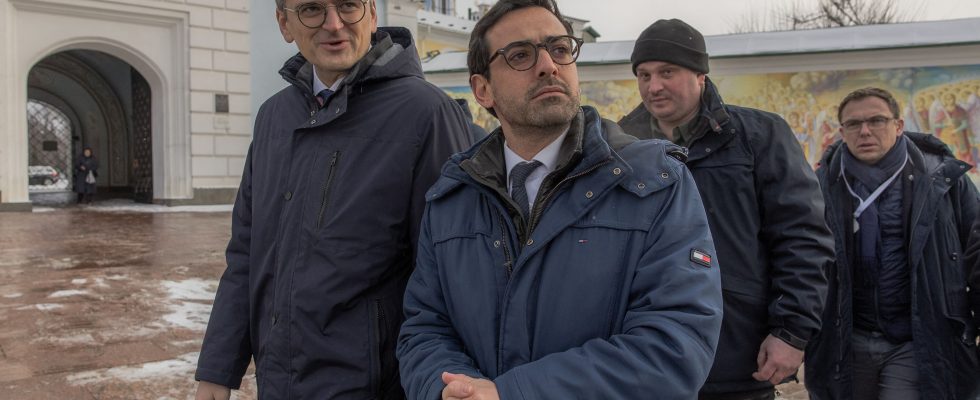From the first minutes, the tone was set. “It will not surprise you, the advent of a strong Europe will be my priority,” said the brand new Minister of Europe and Foreign Affairs, during his handover with Catherine Colonna. It must be said that Stéphane Séjourné went in just a few hours from the functional corridors of the European Parliament to the gilding of the Quai d’Orsay. Since October 2021, the now former MEP has led the centrist parliamentary group in Brussels and Strasbourg, the third largest in the assembly: 102 men and women from 24 different countries. An experience that sets him apart from his recent predecessors, with the exception of Michel Barnier, appointed in 2004, when he was European Commissioner for Regional Policy.
The 38-year-old minister therefore arrives with a detailed knowledge of the concerns of our neighbors and the political balance of power across the Union. He had also just finished a tour of capitals to prepare for the European elections next June and, just a few days ago, detailed the situation in some of them in front of Brussels journalists: the rise of extreme parties. right particularly caught his attention. As president of the Renew group, he also orchestrated regular meetings of centrist and liberal leaders.
Kallas, Rutte, de Croo, von der Leyen…
His functions allowed him to rub shoulders with the Estonian Kaja Kallas as well as the Dutchman Mark Rutte and the Belgian Alexander de Croo, whose country currently holds the rotating presidency of the Council of the European Union. They also put him in direct contact with the President of the European Commission Ursula von der Leyen. An address book across the continent which will prove invaluable.
The passage through the Strasbourg box also provided Emmanuel Macron’s former political advisor with the opportunity to immerse himself in the famous European culture of compromise, the antipodes of French political mores. Among the 27, no text is adopted without the agreement of several political groups. “The Renew group played a pivotal role in building majorities during this mandate, recalls Christine Verger, vice-president of the Jacques Delors Institute. To advance legislative or budgetary files, Stéphane Séjourné had to constantly negotiate with people of all nationalities, outside and inside his group.” The centrist and liberal family is indeed known for its strong and sometimes uncontrollable personalities. The new occupant of the Quai d’Orsay has no experience in diplomacy, but he managed to hold his troops. “I have the deep feeling that it is possible to bring together all the most opposing points of view through dialogue as well as through the effort to convince and understand the other,” he explained during his first speaking in Paris.
Reviving the Weimar Triangle
Generally speaking, Stéphane Séjourné seems rather gifted at interpersonal contacts, including in this multicultural context. In the European Parliament, despite his hesitant English (but excellent Spanish), he enjoys a reputation for simplicity and humility rare for a Frenchman. “He is not a scholar or a great thinker with a vision, but in three minutes, he is able to establish a link with a parliamentary assistant as well as with a leader,” says someone familiar with the institution. capacity that goes hand in hand with real tactical sense and real experience of negotiation.” Qualities that he will need to advance France’s interests abroad.
After a first trip reserved for Ukraine this weekend, the new head of diplomacy will go to Berlin this Sunday and Warsaw the next day in order to revive the Weimar Triangle. This will be an opportunity to meet the new center-right Polish minister, Radek Sikorski, who was also still sitting on the benches of the European Parliament a few months ago.
.
